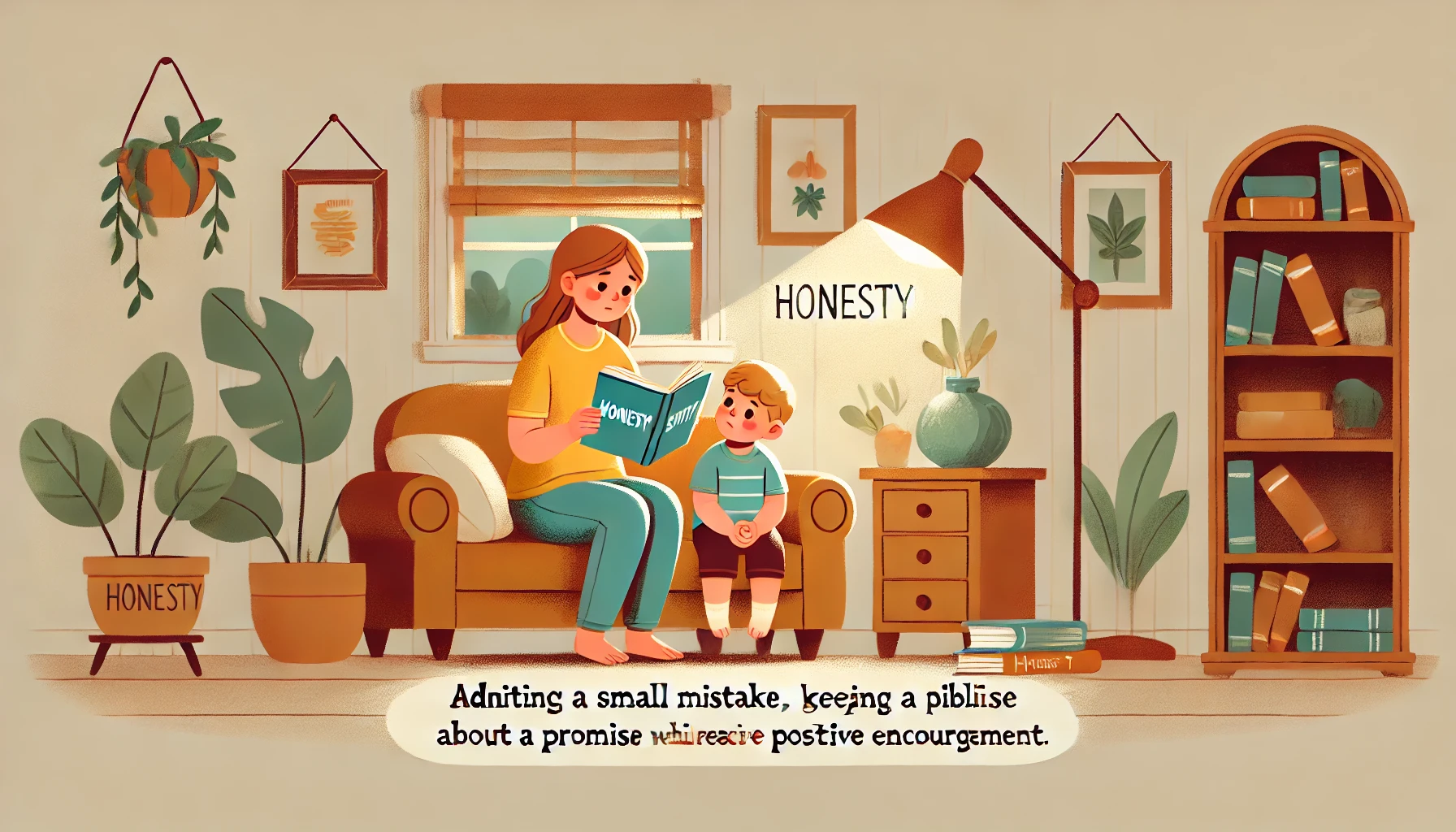How to Teach Young Children About Honesty and Trustworthiness
Teaching young children about honesty and trustworthiness helps them build strong relationships, develop integrity, and make responsible choices. When kids learn the value of telling the truth, keeping promises, and taking responsibility for their actions, they grow into trustworthy individuals. Parents can encourage honesty through storytelling, positive reinforcement, and everyday conversations. In this article, we’ll explore practical ways to help children understand and practice honesty.
Why Teaching Honesty is Important
- Builds strong character – Helps children develop integrity and moral values.
- Encourages trust in relationships – Strengthens connections with family and friends.
- Teaches responsibility – Helps kids understand the impact of their actions.
- Develops problem-solving skills – Encourages open communication instead of hiding mistakes.
- Prepares for future success – Helps children navigate life with honesty and respect.
1. Model Honest Behavior
Children learn honesty by observing how adults handle the truth.
Activity Idea:
- Admit small mistakes: “I forgot to buy milk today, but I’ll get it tomorrow.”
- Keep promises to show reliability: “I said we’d go to the park, so let’s go!”
- Avoid lying to kids, even about small things, to reinforce trust.
What Kids Learn:
- That telling the truth is important, even when it’s difficult
- How honesty builds trust in relationships
- The value of keeping promises and being reliable
2. Explain the Difference Between Truth and Lies
Helping children understand what honesty means makes it easier for them to choose the truth.
Activity Idea:
- Use real-life examples: “If I tell you it’s sunny outside when it’s raining, is that the truth?”
- Play a truth vs. lie sorting game, where kids guess if statements are true or false.
- Read books about honesty, like The Boy Who Cried Wolf.
What Kids Learn:
- How to recognize truth vs. falsehood
- Why telling lies can cause problems
- The importance of speaking honestly
3. Encourage Kids to Admit Mistakes Without Fear
Creating a safe space for honesty helps kids feel comfortable telling the truth.
Activity Idea:
- If a child makes a mistake, respond calmly: “It’s okay. Let’s fix it together.”
- Praise honesty: “I’m glad you told me the truth, even though it was hard.”
- Share personal stories of times when you made a mistake and learned from it.
What Kids Learn:
- That admitting mistakes is better than hiding them
- How honesty helps solve problems
- That they won’t be punished just for telling the truth
4. Teach the Consequences of Lying
Helping kids understand the impact of dishonesty encourages them to make better choices.
Activity Idea:
- Role-play scenarios: “What happens if someone lies about breaking a toy?”
- Show how lies create bigger problems: “If you say you brushed your teeth when you didn’t, your teeth could get cavities.”
- Discuss how lying affects trust and friendships.
What Kids Learn:
- That lies can lead to bigger problems
- How dishonesty affects relationships
- Why trust is important in everyday life
5. Praise and Reward Honest Behavior
Recognizing when children tell the truth reinforces honesty as a positive value.
Activity Idea:
- Say, “Thank you for telling the truth—I appreciate your honesty.”
- Use a “Trust Star Chart”, where kids earn stars for being honest.
- Encourage reflection: “How did it feel to tell the truth today?”
What Kids Learn:
- That honesty is valued and appreciated
- How honesty leads to stronger relationships
- The confidence to always tell the truth
6. Teach Kids to Keep Promises and Be Reliable
Being trustworthy means following through on commitments.
Activity Idea:
- Encourage kids to make small promises and keep them: “You promised to feed the pet—let’s do it together.”
- Play trust-building games, like guiding a blindfolded friend across a room.
- Share stories of trustworthy characters in books and movies.
What Kids Learn:
- That being reliable makes others trust them
- How keeping promises strengthens friendships
- The importance of following through on commitments
7. Use Stories and Books to Reinforce Honesty
Stories help children see the benefits of honesty in action.
Activity Idea:
- Read Howard B. Wigglebottom and the Monkey on His Back (a story about honesty).
- Pause and ask, “What happened when the character told the truth?”
- Discuss how the story relates to real-life experiences.
What Kids Learn:
- How honesty leads to good outcomes
- The consequences of lying or breaking trust
- That truthful behavior is always the best choice
8. Teach the Importance of Being Honest with Themselves
Self-honesty helps children develop confidence and a strong sense of identity.
Activity Idea:
- Encourage kids to express their true feelings instead of saying what they think others want to hear.
- Teach them to say, “I don’t know” or “I made a mistake” without fear.
- Discuss how being honest about feelings helps solve problems.
What Kids Learn:
- That self-honesty builds confidence
- How to communicate truthfully about their emotions
- The importance of being honest with themselves and others
Final Thoughts
Teaching young children about honesty and trustworthiness helps them develop integrity, responsibility, and strong relationships. By modeling honesty, encouraging open conversations, and reinforcing truthful behavior, parents can guide children toward becoming trustworthy and dependable individuals.
